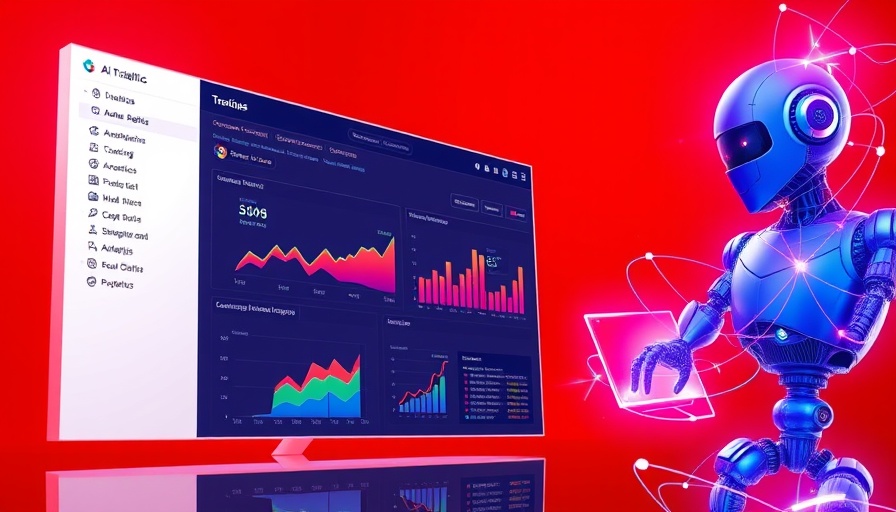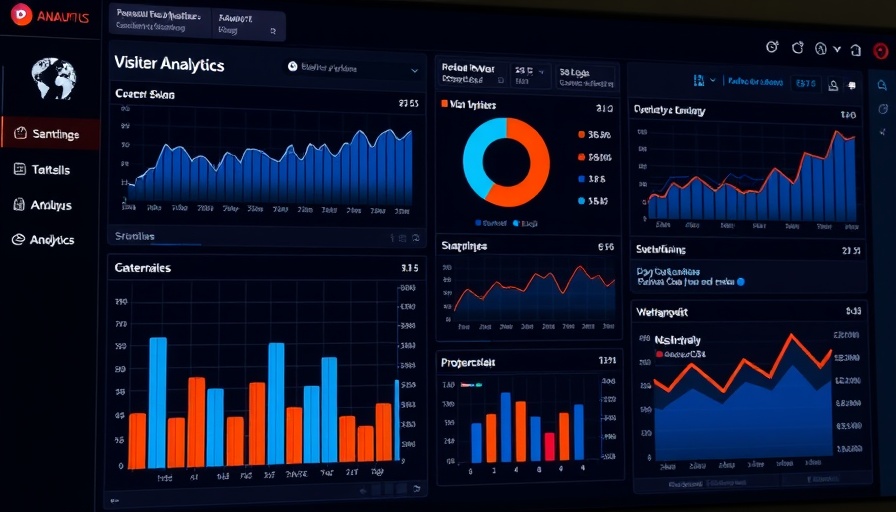
Transform Your Analytics: Tracking AI Traffic in GA4
In an age where artificial intelligence is subtly weaving itself into various aspects of digital marketing, tracking AI-driven traffic has emerged as a critical practice for professionals, business owners, and marketers alike. Understanding AI traffic not only provides insights into user behavior but also enhances your ability to refine marketing strategies effectively.
The Rise of AI Traffic in Digital Marketing
The integration of AI technologies into search engine algorithms and user interactions is transforming how businesses engage their customers online. As AI tools become more prevalent, it's essential to measure their impact accurately. These tools often generate unique traffic patterns that differ from traditional traffic, which means relying solely on standard metrics may lead to skewed analytics.
For instance, platforms powered by AI—from content recommendation engines to chatbots—are revolutionizing user experiences, resulting in increased engagement, yet their contributions to traffic need meticulous tracking to ensure businesses gain full visibility.
The Importance of Google Analytics 4 (GA4)
Google Analytics 4 has changed the analytics landscape significantly. Unlike Universal Analytics, GA4 uses a more sophisticated event-based model that's perfectly aligned with the modern user's journey, especially considering the rise of multi-platform interactions. This model allows for nuanced tracking of AI traffic, delving deeper into the behaviors behind user interactions.
GA4’s focus on user engagement over just page views offers vital insights that can help marketers adapt their strategies to maximize user engagement, ultimately boosting conversion rates. The dashboard provides customizable reports that offer clarity on how AI-driven functionalities affect user journeys, making it an indispensable tool for the modern digital marketer.
Creating a Free Looker Studio Dashboard for AI Traffic
To proficiently analyze AI traffic through GA4, leveraging Looker Studio (formerly Data Studio) can enhance your reporting capabilities by visualizing data in a way that's clear and actionable. Here’s a step-by-step approach to set up your free dashboard:
- Connect Your GA4 Account: Begin by linking your Google Analytics 4 property to Looker Studio. Ensure that you have the right permissions to extract data from your GA4 account.
- Select Relevant Metrics: Choose to focus on metrics that matter, such as user engagement, session duration, and bounce rates, specifically for traffic generated via AI tools.
- Visualize for Insights: Utilize charts, graphs, and data tables to present the data in a manner that's easy to comprehend. Filters can help you separate AI traffic from other sources.
By leveraging this dashboard, businesses can not only track AI traffic but also analyze how effective their AI tools are at driving and retaining users.
Future Trends and Insights: What to Expect
The future landscape of digital marketing will be heavily influenced by advancements in AI and machine learning. According to insights on digital marketing trends for 2025, marketers can expect a growing emphasis on personalized content facilitated by AI, which will create even more intricate paths of user engagement. This evolution necessitates an adaptive approach to analytics.
Understanding AI traffic and its implications will be critical. Stakeholders who can quickly adapt to these technologies will likely see a stronger return on investment in their marketing strategies, fulfilling the expectations of increasingly tech-savvy consumers.
Common Challenges in Tracking AI Traffic
Despite the advancements in tools like GA4 and Looker Studio, numerous challenges persist, particularly in data interpretation and the reliability of AI-driven analytics. Marketers must remain vigilant about the accuracy of AI predictions and be prepared for discrepancies that may arise due to data biases or incomplete data sets. Critical analysis and a willingness to iterate on strategies based on reliable data will be crucial in overcoming these challenges.
Conclusion: Evolving with Data
As AI continues to reshape the digital landscape, the ability to track and analyze AI traffic will determine the success of modern marketing strategies. Implementing robust analytics tools and maintaining flexibility in strategy development will empower businesses to enhance their digital presence effectively.
For marketers looking to thrive in this evolving ecosystem, embracing these tools and insights is not just beneficial—it's essential. Stay ahead of the curve and keep refining your strategies with current trends and technology integration.
 Add Row
Add Row  Add
Add 




Write A Comment